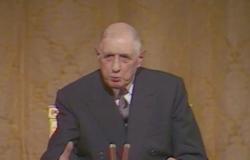Work stoppages are increasingly costing French society. In 2023, their cost jumped by 8.5% to reach the astronomical sum of 15.8 billion euros. And it’s not over: Health Insurance is counting on 17 billion euros for 2024.
Faced with this explosion in spending, the public authorities have decided to tighten the screw. A decree published on July 5 shakes up the rules of the game in terms of medical counter-examinations.
Stated objective: track down fraudsters who cost the community no less than 7.7 million euros per year. Whether you are an employee or an employer, here is everything you need to know about these new game-changing provisions.
The context: a soaring bill for sick leave
Before getting to the heart of the matter, it is important to take stock of the phenomenon. The figures are dizzying: +8.5% in one year, 15.8 billion euros in 2023, 17 billion planned for 2024… The explosion in the cost of sick leave is worrying public authorities. Especially since fraud would represent a significant part of this bill.
According to Health Insurance estimates, no less than 7.7 million euros are linked to fraudulent terminations each year. A substantial sum which pushed the government to react. It is in this context that the decree of July 5, 2023 was issued, introducing new rules for counter-visits in the Labor Code.
New obligations for employees on sick leave
The decree of July 5, 2023 imposes new constraints on employees on sick leave. These measures aim to facilitate controls and combat abuse. Here are the details of these new obligations:
1. Declare your exit times
First novelty and not the least: if the work stoppage mentions “ free exit“, the employee must now declare the hours to your company during which it can be controlled. This measure aims to facilitate the organization of medical check-ups. So no more artistic vagueness about hours spent at home.
2. Inform the employer of the place of rest
Another new obligation: employees must inform their employer of their place of rest if it differs from their usual domicile. Concretely, if you decide to spend your convalescence with your parents or in your second home, you must notify your employer. This measure aims to avoid situations where the examining doctor comes to an address where the employee is not present.
3. Submit to the counter-visit
The terms of the counter-visit have been clarified:
- If the counter-visit takes place at employee’s home or to the address he communicated, this will not be not informed in advance of the arrival of the medical inspector.
- If it takes place at medical officethe employee will be summoned. Please note, however: in the event of inability to travel, the employee must inform the practitioner and provide detailed explanations of their state of health.
4. Consequences in the event of non-compliance
The decree provides for sanctions in the event of non-compliance with these new rules:
- If the judgment is judged fraudulentif the employee refuses the counter-visit west absent during this, the employer can suspend payment of additional compensation.
- Even more serious: theHealth insurance can stop paying daily allowances.
These measures are clearly aimed at making employees responsible and deterring abuse.
The new Cerfa form: an anti-fraud tool
To strengthen the fight against falsified documents, Health Insurance has not just tightened the rules. She developed a new Cerfa formdeemed less falsifiable. This document, which replaces the old model, incorporates additional security elements to make it more difficult for fraudsters.
Concretely, this new form includes:
- Of the filigree complexes
- Of the holograms difficult to reproduce
- And unique barcode for each work stoppage
These technical measures aim to make the falsification of work stoppages much more difficult, if not impossible, for the average fraudster.
The issues for employers
If the new rules impose new constraints on employees, they have important implications for employers. Here’s what to remember:
1. Better control of sick leave
Thanks to the new provisions, employers now have more levers to control the legitimacy of sick leave. The obligation for the employee to communicate his place of rest and his exit times greatly facilitates the organization of counter-visits.
2. Potential savings
By allowing easier detection of fraudulent shutdowns, these new rules could enable companies to make substantial savings. Remember that additional compensation paid by the employer represents a significant burden, especially for SMEs.
3. Increased responsibility
The other side of the coin: these new provisions imply increased responsibility for employers. They must in fact put in place procedures to:
- Collect and manage information communicated by employees on leave
- Organize counter-visits efficiently
- Apply the sanctions provided for in the event of non-compliance with the rules
An additional administrative burden which could prove heavy for certain companies.
The questions that arise
Despite the details provided by the decree, certain gray areas remain. Here are some questions worth asking:
1. What about medical confidentiality?
Doesn’t the obligation for the employee to provide detailed explanations in the event of being unable to travel for a second visit risk infringing medical confidentiality? The line between legitimate control and intrusion into private life could prove tenuous.
2. How to manage special cases?
Some situations could prove complex to manage. For example, what happens if an employee is hospitalized and unable to communicate their place of rest? Or if an employee on leave for severe depression forgets to declare their exit times?
3. What impact on the social climate?
Do these new measures, perceived as a tightening of controls, not risk deteriorating the social climate in companies? The question deserves to be asked, especially in a context where well-being at work has become a major issue.
Key figures to remember
To fully understand the scale of the phenomenon, here is a summary of the key figures to remember:
| Indicator | Figure |
|---|---|
| Cost of sick leave in 2023 | 15.8 billion euros |
| Increase compared to 2022 | +8,5% |
| Forecast for 2024 | 17 billion euros |
| Estimated cost of fraudulent judgments | 7.7 million euros |
In practice: what should employees do?
Faced with these new rules, employees must adapt their practices. Here is a practical guide to being compliant:
- Inform your employer : From the start of your sick leave, inform your employer of your place of rest if it differs from your usual home.
- Declare your hours : If your stop mentions “free exit”, do not forget to inform your company of the times during which you can be checked.
- Stay reachable : Make sure you can be reached using the contact details you provided to your employer.
- Prepare for the counter-visit : Be prepared to receive a medical examiner at any time if the visit takes place at home. If it takes place at the doctor’s office, scrupulously respect the invitation.
- Keep the supporting documents : Keep carefully all documents relating to your sick leave (medical prescription, test results, etc.).
What prospects for the future?
These new rules mark a turning point in the management of sick leave in France. But they are probably only a first step. Several avenues have already been mentioned for the future:
- Strengthening controls : Health Insurance could significantly increase the number of counter-visits in the years to come.
- Digitalisation : The development of digital tools to facilitate the declaration and monitoring of sick leave is being studied.
- Prevention : Measures aimed at preventing sick leave, particularly linked to psychosocial risks, could be put in place.
- European harmonization : A discussion is underway at European level to harmonize practices regarding sick leave.
Ultimately, these new rules on medical check-ups mark an important turning point in the management of sick leave in France. If they aim to fight fraud and control health spending, they raise many questions about the balance between control and respect for employee privacy. Their practical implementation and their real impact on behavior will need to be closely monitored in the months to come. One thing is certain: the debate on sick leave is far from over.






